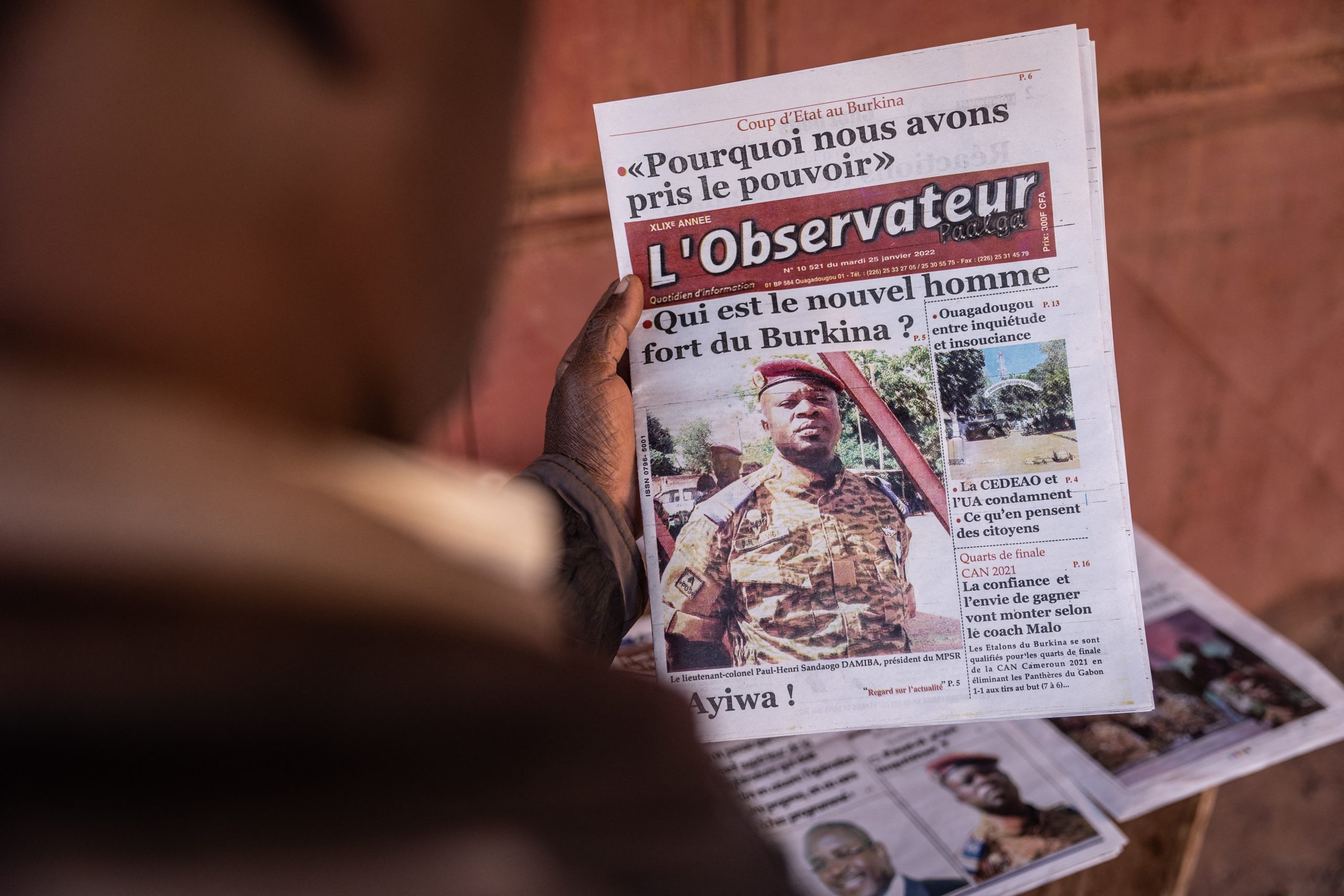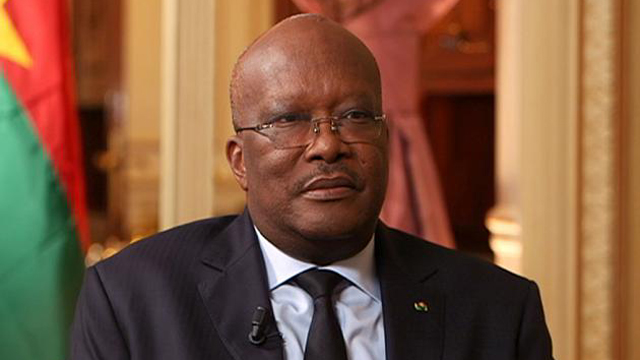
Another officer on state television on Monday read the announcement, signed by Paul-Henri Sandaogo Damiba, a lieutenant colonel. The officer announced the suspension of the constitution, the dissolution of the government and parliament, and the closure of the country’s borders from midnight Monday.
He said the new Patriotic Movement for Preservation and Restoration (MPSR) would re-establish ‘constitutional order’ within a “reasonable time”, adding that a nationwide nightly curfew would be enforced.
The development came hours after Kaboré was said to have been detained by mutinying soldiers.

Days before Kaboré’s “detention”, some soldiers were reportedly arrested for attempting to overthrow the government.
In September 16, 2015, a major coup attempt occurred in the country, when members of the Regiment of Presidential Security, a controversial autonomous military unit, detained the country’s transitional President Michel Kafando, Prime Minister Yacouba Isaac Zida and numerous members of the cabinet.
This transitional government was formed in the wake of the 2014 Burkinabe uprising when a popular movement overthrew the long-time president Compaore.
However, the military junta, headed by General Gilbert Diendere, failed to consolidate its authority and faced protests as well as intense pressure from the international community, and eventually from the regular army, to restore the transitional government.
The situation in Burkina Faso shows a growing attempt to topple sitting leaders by armed forces.
While the regional blocs are still trying to wrap their hands around the situation in Mali and a few others, Burkina Faso, has joined the wagon.
In August 18, 2020, Malian President Ibrahim Boubacar Keita and his Prime Minister Boubou Cisse were detained and forced to resign by the military.
The Economic Community of West African States (ECOWAS) and West African Economic and Monetary Union (WAEMU) imposed sanctions on the country, which was triggered by the military government’s attempt to extend the transition period by five years, beginning January 1, 2022, despite a commitment to holding elections this February.
In July 2019, some military officers seized power in Gabon, but the putschists faced pressure from across the continent to abort their undemocratic mission immediately and were subsequently arrested.
Zimbabwe was not left out, when on November 15, 2017, the military rolled its tanks into the capital Harare taking over the state broadcast station and announcing that they were in charge of the nation.
The coup plotters immediately placed 93-year-old president, Robert Mugabe, and his family under house arrest. This marked the end of his 37-year rule, as pressure mounted from the military, protesters, and looming impeachment in parliament.
Mugabe was toppled after speculation that he wanted his 51-year-old wife, Grace Mugabe to succeed him, an idea opposed by the army.
Managing Partner, Malachy Ugwummadu & Co. Chambers, Mr. Malachy Ugwummadu, described the situation as deeply regrettable and a sad commentary on the state of the African continent.
He said that the coup was an indication that a lot needs to happen politically to reposition the continent for good.
“There is very little that can be achieved even economically when there is political instability. Africa, from Guinea to Mail and now Burkina Faso has shown very fragile political entities on the fringes.
“The sad news is that in the sub-region, there isn’t a very strong monitoring or supervisory agency or body that can really put an end to the incidents of backward political conducts.
Ugwummadu said that he thought the days of military coups and counter-coups were gone, adding that Africa is able to stamp its feet on the ground when stronger leadership presides over its affairs.
According to him, it is important that the AU, ECOWAS, United Nations and other sub-regional bodies call out Burkina Faso, Mali and Guinea on their specific situations and take relevant steps to retrace what has happened and restore power to the people.
“Those who are jumping up and down are the very victims of lack of transparent and constructive leadership in those countries. I am talking of the citizenry who are showing appreciation to what has happened, it starts that way, but by the time the autocracy and brutality of military rule dawn on them, the songs will change,” he said.
He called on international and regional bodies to go beyond mere exhortations to executing sanctions imposed.
“For the sub-regional bodies to remain relevant, they must go beyond issuing press statements and condemning transgressions in the media. They must enforce mechanisms within their fold and create practical solutions to issues of this nature. Issues of sanctions should be made effective and targeted at the rebels, not the citizens. What is at stake is a fight in principle and not about the fate of whoever is taking over. Military rule, which is a government taken through violence is no longer fashionable and we can no longer entertain it in the 21st century,” he declared.
Ugwummadu stated that the easiest thing to do was to enhance governance in Africa.
“If there are good medical institutions, meaningful jobs and the future assured through infrastructure provisioning and adequate educational programmes and social welfare available to all, nobody would come with the idea of a coup,” he explained.
Reacting to concerns of a rise in military rule, Lecturer, Lead City University, Prof. Alaba Ogunsanwo, thinks differently.
According to him, the incident in Burkina Faso and a few other African countries does not qualify as a trend because there are 54 countries in Africa.
“Each country has its own dynamics and terms for development,” he stated.
Talking about a possible uprising in Nigeria if the sufferings of the people escalate, Prof. Ogunsanwo, quoting former Nigerian head of state, General Abusalami Abubakar, warned that “if Nigerian government removes subsidy, EndSARS would be a small thing compared to the uprising the nation would experience all over the country, and we don’t know what would happen after that.”



